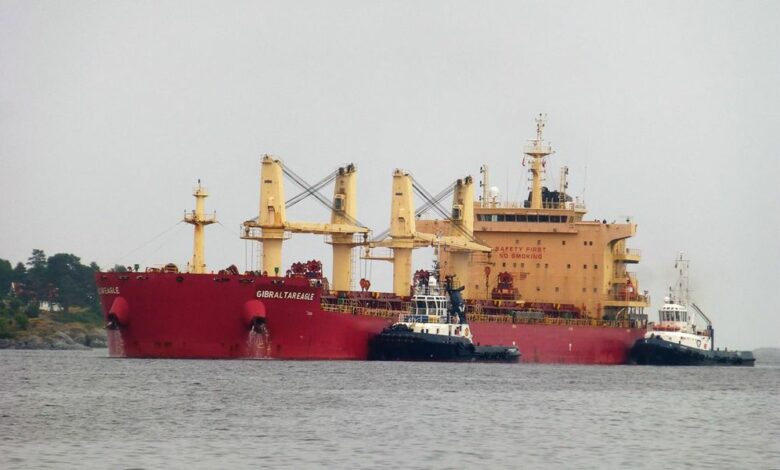
Eagle Bulk attack highlights how Houthis are widening their targets
More shipping companies are shunning the Suez Canal as fears grow that the Houthis are widening their targets.
Gibraltar Eagle, a bulk carrier owned by US-based Eagle Bulk Shipping was struck by a missile in the Gulf of Aden yesterday.
The United Kingdom Maritime Trade Operations (UKMTO), and maritime security consultants Ambrey said the incident occurred some 95 nautical miles southeast of Aden, Yemen.
Ambrey has corroborated that the bulker was impacted in hold number five, adding that a total of three missiles were reportedly launched by the Houthis, with two not reaching the sea and one impacting the 64,000 dwt bulker.
The vessel arrived in the Gulf of Aden after industry and military advice to avoid the southern Red Sea and Bab el-Mandeb Strait for 72 hours following US and UK strikes on Houthi militants last week.
Lars Jensen, CEO of maritime consultancy Vespucci Maritime, suggested that Houthi attacks are now spreading in both geography and target scope.
Jensen has been providing keenly read daily updates via LinkedIn on the unfolding Red Sea shipping crisis. In today’s instalment, he argued that the recent repeated attacks in the Gulf of Aden will be a problem for many living in the Horn of Africa.
“This expansion of the risk area is problematic as it compromises the route into both Djibouti and Berbera which in turn serves the 100+ million people in the hinterland in Ethiopia with no other alternative sea route apart from an extremely long overland haul from Kenya,” Jensen pointed out.
Ami Daniel, the CEO of Israeli maritime risk analytics firm Windward, said that the declaration last week by the Houthis to go after US- and UK-linked ships as well as Israeli ones extended the militia group’s target list dramatically. According to Windward data, there are approximately 4,000 active vessels globally with affiliations to the US and UK.
Tesla and Volvo Car, owned by Geely, have announced this week they are temporarily halting production in Europe due to component shortages resulting from attacks on shipping in the Red Sea, the latest in a series of supply chain disruptions hitting Europe from the ongoing crisis.